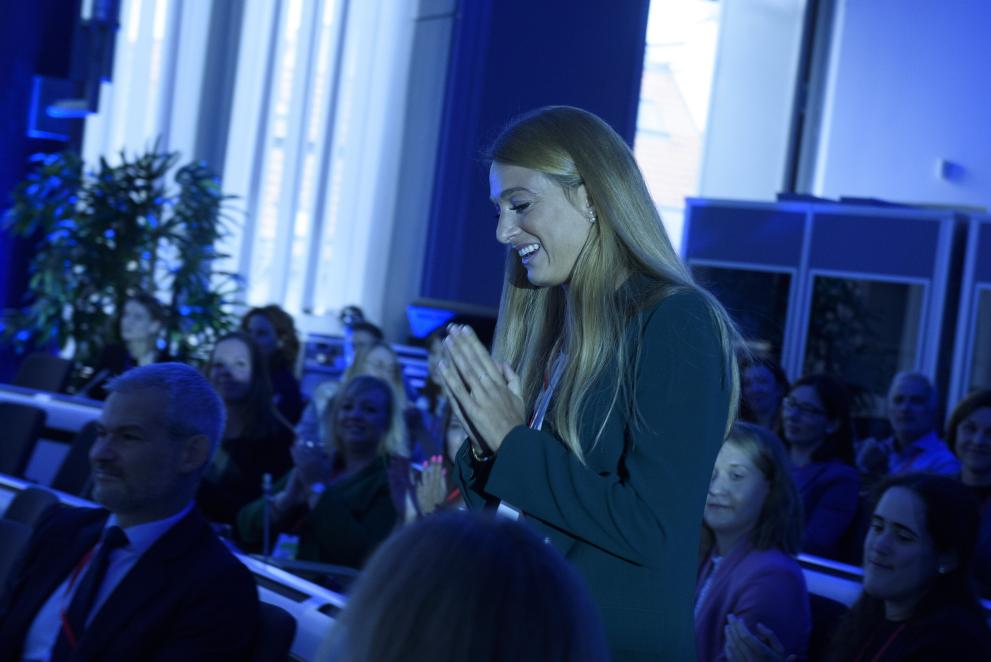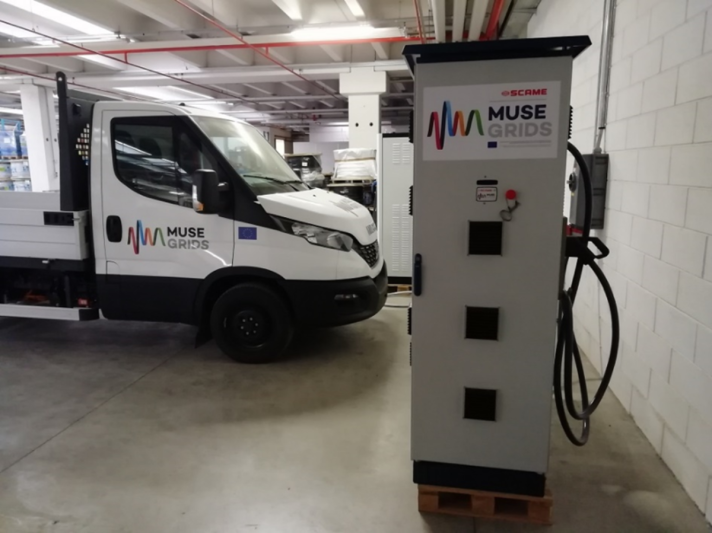
The deadline to apply for the EUSEW Awards has now passed, and no further applications will be accepted. Applicants can expect to be informed about whether they are a finalist by the end of March.
MUSE GRIDS
‘We have implemented some really exciting technologies such as a neighbourhood battery, electrical smart heating, and vehicle-to-grid chargers’
The EU-funded project MUSE GRIDS is bringing local renewable energy production to a hilltop town in Italy and a rural neighbourhood in Belgium. A smart energy system integrates energy-intensive municipal services such as water, electricity, natural gas, and heating and cooling networks. As a result, citizens of Osimo and Oud-Heverlee benefit from greater control, energy savings and affordable local renewable energy generation for self-consumption. Up to 90% of their energy needs are now being covered by residents’ own local energy production and optimisation of use and distribution.
As Fabiola Roccatagliata, Project Coordinator of MUSE GRIDS, explains the project ‘validates solutions for the decarbonisation of the local energy system while ensuring a positive impact on the centralised energy infrastructure, local economy and local social aspects, and air quality.’
The project works by integrating renewables into the community and educating its members about new technologies that can help respond to their needs. For example, Matthijs Doclo, Project Manager at ENGIE Laborolec, outlines how the project allows communities to make the most of peak renewable energy production, such as on a sunny day: ‘The MUSE GRIDS controller looks at the production and consumption of the whole community. When there is too much production, we charge the car and then later in the evening we will discharge the car back to the house, so the owners can use the green electricity for their evening consumption.’
In addition to the two demo sites in Belgium and Italy, international virtual demo sites in Spain, India and Israel are taking part in the project. This allows the team to monitor results in real-time and in real-life applications under different circumstances. This way, the project can better adapt solutions to the local needs of the communities, laying the groundwork for a replicable methodology.
The project is funded under the EU’s Horizon 2020 programme, and responds to the EU’s long-term goal of climate neutrality by 2050. Such actions are delivering on the European Green Deal, and more urgently, supporting the REPowerEU Plan to accelerate the clean energy transition and increase Europe’s energy independence.
MUSE GRIDS was one of three finalists shortlisted for the European Sustainable Energy Awards 2022 in the Innovation category. The other finalists in the Innovation category are Beccs Stockholm and ENVISION.
RELATED ARTICLES:
➔ EUSEW Award Winners 2022
➔ Get involved in EUSEW 2023: Your guide to shaping Europe’s energy transition
➔ EUSEW Awards 2023: Introducing the categories
Details
- Publication date
- 19 January 2023
- Author
- European Climate, Infrastructure and Environment Executive Agency

